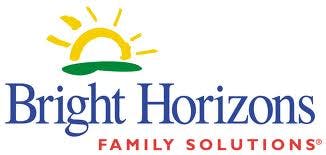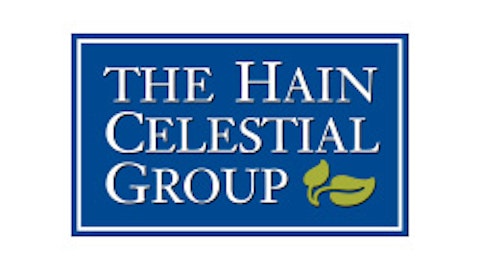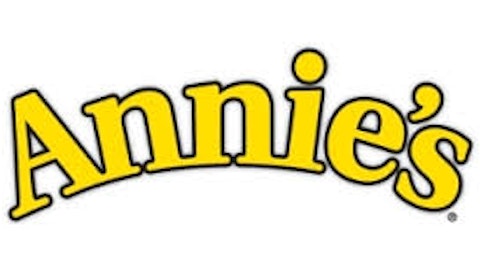Introduction
Bright Horizons Family Solutions Inc (NYSE:BFAM) went public earlier this year and offers a unique investment opportunity to profit from the increasing demand for corporate sponsored as well as non subsidized day care in the U.S. and in certain foreign countries. The company was public once from 1997 through 2008 when Bain Capital acquired Bright Horizons in a leveraged buyout. As of this writing, Bain continues to hold about 2/3 of Bright Horizons’ common stock, down from about 80% at the time of the latest IPO.
At the current stock price, Bright Horizons Family Solutions Inc (NYSE:BFAM)’ common stock seems like an overpriced investment that could benefit from improvements in the economy, synergies from acquisitions, international expansion and offering of new services. On the negative side, even though day-care is a somewhat recession-proof industry, declines in population growth and prolonged economic difficulties could put pressure on the stock price. Also, if President Obama’s administration enacts his plans for free pre-school education, this could have a major negative impact on Bright Horizon.
Two safer and less expensive investments are the Children’s Place Retail Stores, Inc. (NASDAQ:PLCE), a retailer in North America of children’s apparel and the The Hain Celestial Group, Inc. (NASDAQ:HAIN), a manufacturer and distributor of baby food and care items among other products. Children’s Place should benefit if online sales are charged sales taxes, which is expected by the end of the year. And Hain Celestial is benefiting from a secular shift to natural and organic products. The three companies together provide the essentials for raising a baby including shelter, clothing, and food.
Fundamentals and valuation
At the time of the buyout in 2008, Bain paid about $1.3 billion for Bright Horizons Family Solutions Inc (NYSE:BFAM), which did not have any debt and was trading at 1.67 times and 17.3 times its 2007 revenue and EBITDA, respectively. Currently, Bright Horizons trades at 2.2 times and 15.3 times its 2012 revenue and EBITDA, respectively. In addition, the company is much larger and has a gross margin of 23.5% compared to 20.2% at the time Bain took Bright Horizon private. In other words, investors in Bright Horizons can buy its common stock at valuation levels similar to when the company was acquired by Bain five years ago. The only difference is that currently Bright Horizons has a debt of $760 million (or a third of the company’s market capitalization) compared to no debt back in 2008.
Today, Bright Horizons Family Solutions Inc (NYSE:BFAM) has 64.7 million shares outstanding, a market capitalization of $2.3 billion and an enterprise value of $3 billion. The company trades at a lofty price-to-earnings ratio of 33 based on estimated 2013 earnings. During the first quarter of 2013, its revenues rose by 9% to $280 million and it earned $0.25 per share or $0.03 higher than the average estimate. For comparison, Children’s Place Retail Stores, Inc. (NASDAQ:PLCE) and The Hain Celestial Group, Inc. (NASDAQ:HAIN) trade at 17 and 26.3 their estimated 2013 price-to-earnings ratios, respectively.

Bright Horizons Family Solutions Inc (NYSE:BFAM) centers use the resources of the headquarters but are generally run independently. The centers provide some of the best day care from birth to kindergarten. Also, Bright Horizons is voted one of the best places to work in the U.S. and is known for promoting from within and providing its employees with an online courses, where they can earn a child development associate program.
As of March, Bright Horizons Family Solutions Inc (NYSE:BFAM) had 773 centers with a capacity of 88,100, of which 70% are profit and loss centers. Under the profit and loss model, Bright Horizons retains the financial risk, and this model has two sub-models:
- The sponsor model – under the sponsor model, the company provides child care and early education services on a priority enrollment basis for employees of an employer sponsor, and the employer sponsor generally pays facility, pre-opening and start-up capital equipment and maintenance costs.
- The lease/consortium model – the child care center is typically located in an office building or office park in a property that Bright Horizons leases, and it provides services to the employees of multiple employers.
The remaining 30% are cost-plus centers. Under the cost-plus center model Bright Horizon is paid a management fee and a subsidy from the employer to supplement tuition paid by parents of children in the center. Under this model, the employer sponsor typically pays facility, pre-opening and start-up capital equipment and maintenance costs; the center is profitable from the outset.
In addition, Bright Horizon provides back-up dependent care. During 2012 it provided emergency day care 800,000 times, of which 100,000 were for the elderly. This segment generated revenues of $130.1 million (12% of total revenue) or about $163 per emergency dependent care visit. Finally, about 2% of the company’s revenues are derived from employer sponsored educational advisory services. This segment has two major services:
- College Coach – providing middle and high school students with one-on-one college guidance and preparation help;
- EdAssist – managing tuition reimbursement programs for employer clients.
Bright Horizons should increase revenues by 10-13% in 2013 and add 75-80 net new centers. Even though Bright Horizons’ tuition is among the highest it usually raises tuition 3-4% per year. The quality of care/education and the flexibility of the days and hours you can bring your child there make Bright Horizon a premium but competitive and attractive proposition. Most parents, if they have the means, prefer quality and convenience over price when choosing a daycare for their infants.
Children’s Place Retail Stores, Inc. (NASDAQ:PLCE) operates 980 stores in the U.S. and 131 stores in Canada and an e-commerce web site (childrensplace.com). Also, the company had 16 franchised stores in the Middle East. Sales for the first quarter ended May 4, 2013 decreased by 3.5% while e-commerce sales increased by 13%.
Finally, The Hain Celestial Group, Inc. (NASDAQ:HAIN) operates in four geographic segments including U.S., Canada, United Kingdom, and Europe. The company’s products range from natural food and beverages to frozen food and personal care items. The company is having the fastest growth among the three companies as it grew sales in the quarter ended March 31, 2013 by 21.4% compared to the same period in 2012. Also, the company is actively acquiring other companies and brands and during the past twelve months made three strategic acquisitions including Ella’s Kitchen (maker of premium organic baby food), BluePrint (a leader in the raw juice category), Premier Foods plc (a maker of packaged groceries).


